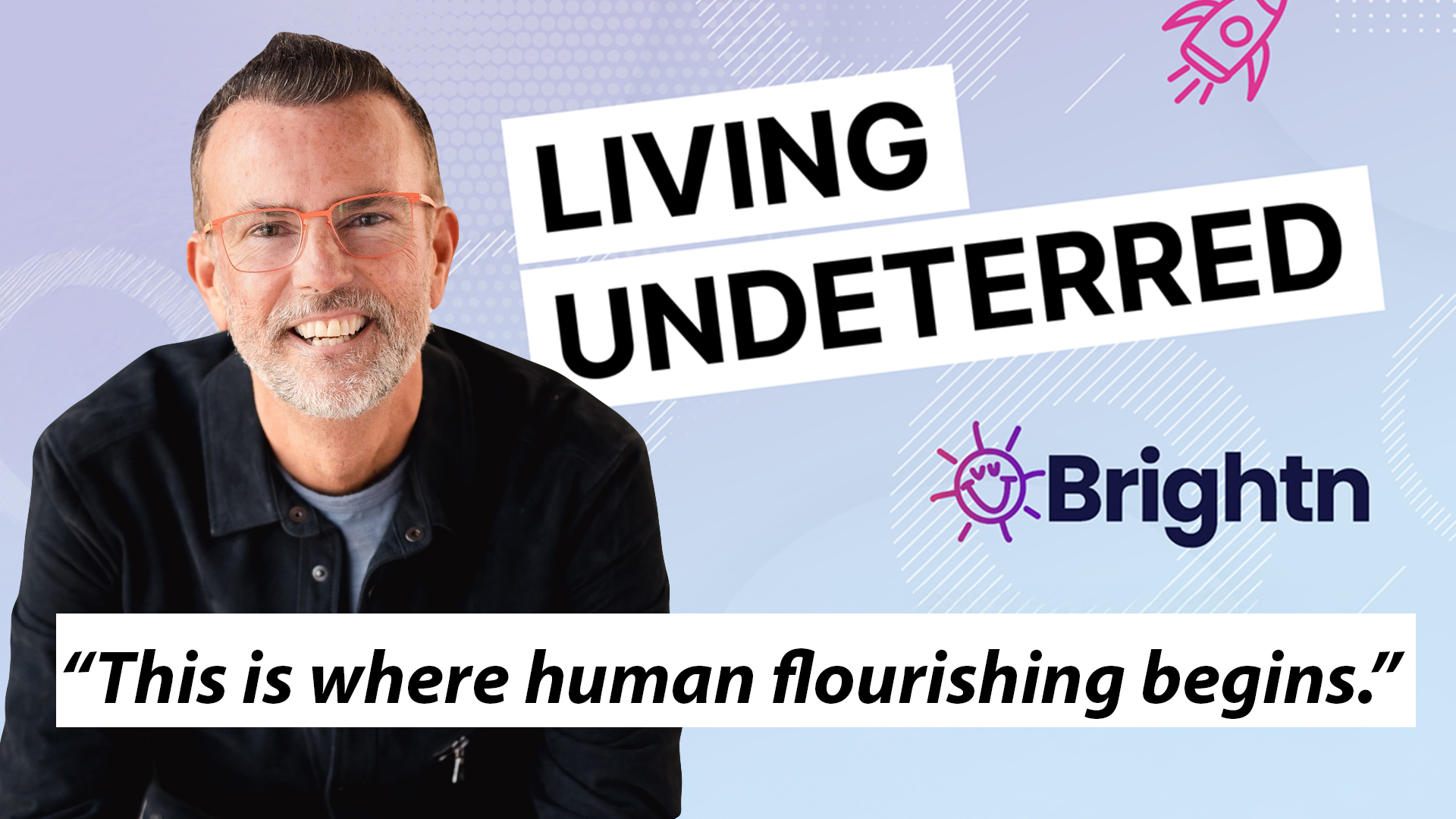
Jeffrey Johnston
January 15, 2026
•
6 min read

From the Living Undeterred Podcast, Powered by Brightn
By Jeff Johnston, Founder of Brightn and Host of the Living Undeterred Podcast
🎧 Watch the full episode below:
Welcome back to part two of this special solo series. In the last episode, I shared the origin story—the personal road of grief, loss, and rebuilding that led me to create Brightn.
In this episode, we shift from the why to the how.
How do we build a meaningful life after trauma?
How do we move beyond crisis response and into proactive wellness?
How do we give people tools to flourish, not just survive?
The answer I found didn’t come from a textbook. It came from my own life—and my 32 years in wealth management.
When I lost my son, Seth, to fentanyl poisoning—and later my wife, Prudence, to the slow burn of grief—I didn’t set out to build an app.
But I did start asking questions.
Why are we so quick to medicate emotional pain?
Why are so many people struggling, even as wellness tools flood the market?
And why do we treat mental health like a crisis, instead of a daily habit?
That’s when it hit me.
“In wealth management, we don’t just react—we plan. We diversify. We manage risk before it breaks us. What if we did that for mental wellness?”
So I borrowed a model from the financial world—and reimagined it for the human experience.
When you sit down with a financial advisor, you’re asked to diversify your portfolio across asset classes: stocks, bonds, real estate.
I began to wonder: what would happen if we diversified our life in a similar way? What would those human asset classes look like?
After years of reflection, listening, and research, I landed on three pillars that shape a well-lived, emotionally resilient life:
88% of Americans are metabolically unhealthy. But you don’t need fancy biohacks or wellness subscriptions to start improving your health. You just need awareness—and better choices.
“You don’t need a cold plunge. You need to choose water over soda—twenty times a day.”
At Brightn, we treat health as a foundational pillar. The app promotes breathwork, meditation, movement, and nutrition—not as trends, but as habits that compound over time. These small shifts are the groundwork for emotional strength.
Gen Z is the most anxious, depressed, and lost generation in human history—despite having more access and abundance than any before.
What’s missing?
“When we stop serving others, we stop finding meaning.”
Brightn rewards users not just for showing up, but for giving back. Earn points for daily habits, then use them to plant trees, feed the hungry, or rescue pets. We believe purpose is one of the greatest antidepressants—and it’s free.
This one surprised even me. But the more I researched, the clearer it became:
“The #1 stressor for Gen Z isn’t social media—it’s financial insecurity.”
And yet, money is rarely addressed in mental health tools. It’s not "clinical enough." But stress over bills, debt, or not understanding how money works? That’s real. That’s daily. And that’s something we must address.
Brightn introduces practical, judgment-free prompts that help users build better relationships with money—so they can reduce stress and take back control.
This is what we’ve built at Brightn: the first-ever mental wellness planning app.
Instead of diagnoses and labels, we help people build personalized plans based on the intersection of health, wealth, and purpose. This isn’t about becoming superhuman. It’s about building a life with enough strength, stability, and meaning to face what comes.
“My goal wasn’t to build another telehealth platform. It was to build a system that helps people before they break.”
Every day, 909 people die in the U.S. from deaths of despair. This isn’t just a statistic—it’s the story of my family. And it’s the reason I’m doing this work.
Brightn isn’t a quick fix. It’s a tool, a movement, and a tribute.
To Seth.
To Prudence.
And to every person who’s ever felt like their pain was too big to carry.
“We can’t eliminate pain. But we can reduce unnecessary suffering. We can build systems that help people thrive.”
Part 3: Faith & Forgiveness
How rediscovering my faith—not religion, but real, grounded belief—became the glue that held everything together.
Mental wellness isn’t a one-lane road. It’s an intersection.
When you invest in your health, align with your purpose, and build financial clarity—you give yourself a fighting chance at peace. Not perfection. Just peace.
So if you’re wondering where to begin, start with this:
Breathe.
Help someone.
And spend a little less than you make.
Simple choices. Better days.
Welcome to the intersection.
Let’s Brightn lives, together.
Ready to take charge of your mental wellness? Try Brightn free today.
